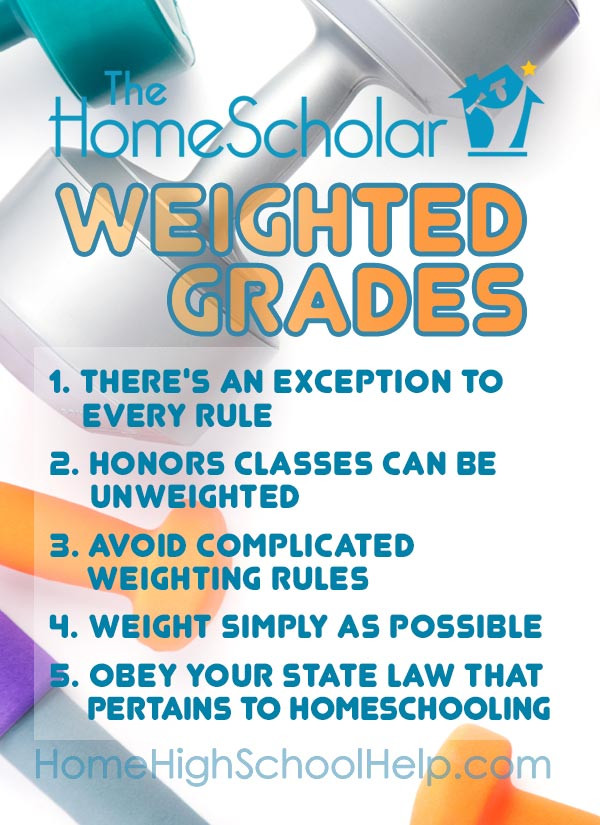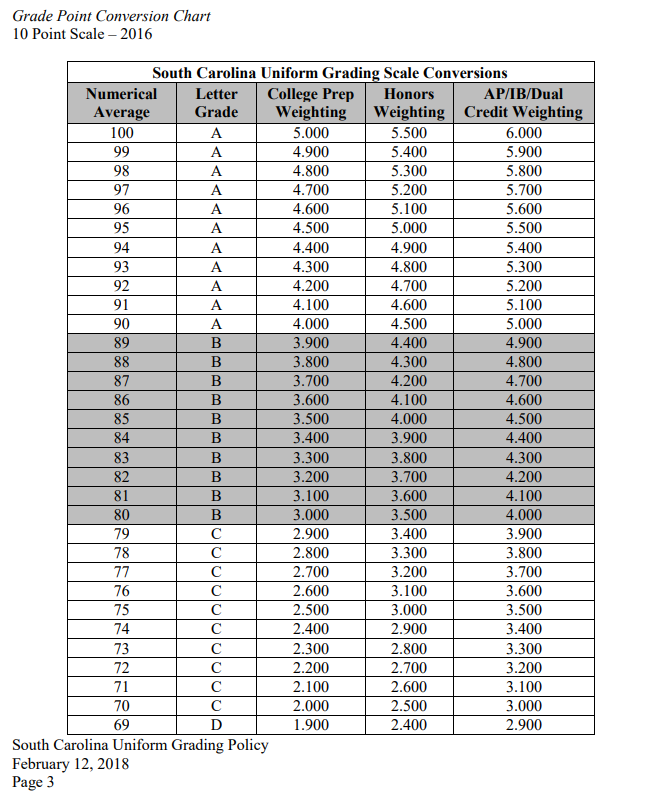Should Homeschoolers Weight Grades?
Published on September 23, 2021 by LeeBinz
Have you ever wondered if homeschoolers should weight grades? Perhaps you have heard of students taking AP® courses or honors courses and receiving a grade greater than a 4.0. I often get asked about using a weighted grading system for honors classes on a transcript.
Weighted Grading System Complications
In general, I don’t recommend weighting grades. It makes it harder for colleges, and colleges tend to like you more if you make their job easier!
Here is the problem: every high school has a different policy on weighting grades. For an honors or AP® class, some high schools will add 1.0 to the grade, so the highest grade possible is a 5.0 instead of a 4.0.
Some high schools will increase the grade by 0.5, so honors classes can earn a 4.5 grade. To further complicate things, some high schools will change the credit value. An honors class might be worth 2.0 credits, or 1.5 credits, instead of a 1.0 credit like normal.
There are so many variations and possibilities. The ones I listed are just the tip of the iceberg as far as how different school districts calculate weight for different classes, whether they be general education, college prep, honors, AP®, dual-enrollment, or more. Imagine the challenges comparing students from different schools and school districts for the admissions teams at colleges!
For that reason, the first thing they do is to un-weight any weighted grades. Colleges have asked me to tell parents not to weight grades, so I don’t recommend a weighted grading system unless your first-choice college prefers grades that way.
Grading Considerations for Your Homeschool
Of course, every homeschool must make its own decision. There are exceptions and some important points to consider when building your child’s transcript. Here are five tips to remember:
1. There’s an exception to every rule.
Grades should be weighted only when your first-choice college prefers it that way. Remember, you can always reach out to an admissions office of a school you are considering and ask them what their preference is in this area. Then, follow what admissions tells you, especially if this school is your first-choice college.
2. Honors classes can be unweighted.
You aren’t required to weight classes just because they are honors classes. Instead, you could just say “Honors” in front of each class and allow the colleges to weight them. Like this:
- Honors: Biology with Lab
- Honors: English Composition and Literature
3. Avoid complicated weighting rules.
If you are going to use a weighted grading system, I suggest you do it VERY simply. Do NOT do it like the public school method in South Carolina, for example. This image is from the South Carolina Uniform Grading Policy issued by the South Carolina State Board of Education, February 12, 2018. It is a good example of how complicated things can be!
South Carolina is just one example among many, but that state, in particular, has a very complicated method for grade weighting!
Remember, colleges must make sense of students coming from every state, each of which has a different structure for grade weighting.
4. Weight as simply as possible.
A simple weighted grading system might include adding 1.0 to the grade of all college-level courses. Here’s an example: for an AP® or dual enrollment class, if the final grade is 3.8, you add 1.0 to the grade. When calculating GPA, you’d use 4.8 for the grade, instead of 3.8 for the grade.
5. Obey your state law that pertains to homeschooling.
As a homeschooler you get to decide on your own school policy. Generally, homeschoolers are not required to do what public schoolers do. If you are unsure about what is required, you can find your state law here: Homeschool Laws by State. The entire public school law may not apply to you, so follow your state homeschool law instead.
The bottom line is, I don’t recommend weighting grades. But because there are exceptions to any rule, be sure to call the college you are considering and ask them what they want — then, give it to them!
One more important consideration is your child’s GPA. Calculating GPA is an important part of building your high school records, and this is one reason why weighted grades are often a pressing concern for homeschoolers! If you need help calculating GPA, you can find help here: How to Calculate Homeschool GPA.
Make an Informed Decision
Hopefully, the five tips listed above help you make an informed and peaceful decision about this important aspect of your grading structure for your student.
If you do find yourself in need of a weighted grading system for a first-choice college, here are the easiest ways I have seen for weighting grades for honors or AP® classes:
- Credit: double the credit value of the class to 2.0
- Credit: increase the credit value of the class to 1.5
- Grade: add 1.0 to your final grade
- Grade: add 0.5 to your final grade
Be sure to include the grading scale you choose clearly on your transcript and in your records, so colleges can easily determine and understand how your student’s GPA was calculated.
What do you think? Do you weight grades for your homeschool?
Learn more about figuring grades in my video book review! Making the Grades is available on Amazon in Kindle or print version.







